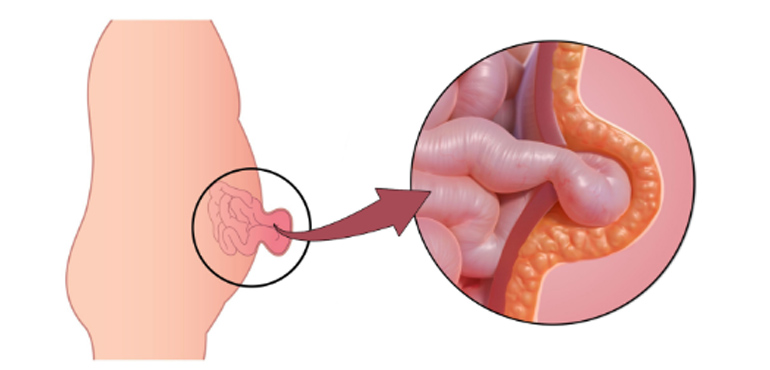
An umbilical hernia occurs when part of your intestine sticks out through the opening in your abdominal muscles through which your umbilical cord passed. It is a bulge near the belly button or nave and may hold some intestine, fat or fluid.
Umbilical Hernia Symptoms
Lump or bulge in the affected area
Chest pain
Feeling pressure in the abdomen
Difficulty in swallowing
The severity of the Umbilical Hernia depends upon its size. In case the Hernia is rapidly increasing in size, a surgery is needed for the repair.
Laparoscopic hernia repair is a less invasive procedure. The surgeon makes several smaller incisions around the hernia bulge site. Then they insert a long, thin tube with a lighted camera on the end into one of the incisions. This instrument is called a laparoscope. It allows the surgeon to see inside your abdominal cavity on a video screen.
Regardless of the type of surgery, the goal of the procedure is the same. The surgeon gently places the bulging intestine or other intra-abdominal tissue and abdominal lining back through the hole in the abdominal wall. Then they sew the hole closed. Then they insert a synthetic mesh material into the abdomen to strengthen the area.
Laparoscopic umbilical hernia repair with combined herniorrhaphy and intraabdominal mesh fixation using absorbable sutures offers the ideal outcome with low recurrence, and lesser complication of infection seroma formation, and chronic pain with reduced cost of procedure.
Laparoscopic repair of umbilical hernia (LRUH) is gaining increasing popularity due to its low recurrence rate, short hospital stay, and low complication rate. Laparoscopic repair of ventral and incisional hernia has become the standard treatment nowadays.
Benefits of Laproscopic Umbilical Hernia Repair
Minimally Invasive Procedure
24 hr Hospitalization
Complete Recovery in 3-4 Days
Experience of 3000+ Surgeries